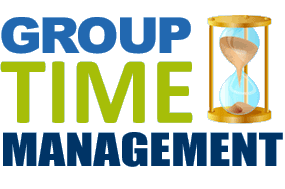
In today’s fast-paced business environment, mastering time management is essential for professionals aiming to boost productivity and achieve their career goals. Effective time management goes beyond maintaining a to-do list; it involves prioritizing tasks, minimizing distractions, and making the most of your working hours to drive success. This article explores key techniques to help you manage your time efficiently, enhance work performance, and maintain a healthy work-life balance.
Importance of Time Management for Business Professionals
Time management is a critical skill that enables business professionals to navigate the demands of their roles while maintaining high productivity levels. In a world where time is one of the most valuable resources, the ability to manage it effectively can lead to significant improvements in work efficiency, job satisfaction, and overall career success. By mastering time management, professionals can reduce stress, meet deadlines consistently, and make better decisions about how to allocate their time and energy.
Techniques to Manage Time Efficiently
Prioritize Tasks with the Eisenhower Matrix
One of the most effective ways to manage time is by prioritizing tasks based on their urgency and importance. The Eisenhower Matrix, also known as the Urgent-Important Matrix, helps categorize tasks into four distinct areas: urgent and important tasks require immediate attention and should be prioritized first; important but not urgent tasks should be scheduled for later; urgent but not important tasks can be delegated to others; and tasks that are neither urgent nor important can often be eliminated.
This approach ensures that you focus on tasks that truly matter, preventing you from getting bogged down by less important activities.
Time Blocking to Structure Your Day
Time blocking is a powerful technique that involves scheduling specific blocks of time for different tasks or activities throughout the day. This method creates a structured routine, allowing you to allocate sufficient time for high-priority tasks while managing other responsibilities. By dedicating time slots to particular tasks, you can reduce multitasking, minimize distractions, and maintain focus.
To implement time blocking effectively, it’s important to identify your peak productivity times and schedule your most important tasks during those periods. Grouping similar tasks together can also maximize efficiency. Finally, it’s crucial to include breaks and buffer time in your schedule to accommodate unexpected interruptions.
Practicing the Pomodoro Technique for Focused Work
The Pomodoro Technique promotes focused work by breaking tasks into short, manageable intervals—typically 25 minutes—followed by a five-minute break. After completing four intervals, you take a longer break of 15-30 minutes. This technique helps maintain concentration and prevent burnout, making it easier to tackle complex or lengthy tasks.
To get started, choose a task to work on, set a timer for 25 minutes, and work on the task without distractions. After the timer goes off, take a short break to relax and recharge before repeating the process. This method is particularly effective for professionals who struggle with procrastination or have difficulty maintaining focus for extended periods.
Delegate and Automate to Free Up Time
Delegation and automation are essential strategies for optimizing time management. By delegating tasks that others can handle, you free up time to focus on higher-value activities that require your expertise. Similarly, automating repetitive tasks can streamline your workflow and reduce the time spent on routine activities.
To delegate effectively, identify tasks that are time-consuming but do not require your specific skills or expertise. Assign these tasks to capable team members or external resources. Leveraging technology for automation can also be beneficial. Tools like Trello, Zapier, and Microsoft Power Automate can help automate workflows and save time, allowing you to focus on tasks that have the greatest impact on your professional goals.
Setting SMART Goals to Stay on Track
Setting SMART (Specific, Measurable, Achievable, Relevant, Time-bound) goals is a key component of effective time management. By setting clear, actionable goals, you can maintain focus, measure progress, and stay motivated to achieve your objectives.
SMART goals help you stay on track by providing a clear roadmap for your professional development and ensuring that your time is spent on activities that align with your long-term career goals. Regularly reviewing and adjusting these goals is essential to maintaining momentum and achieving success.
Mastering time management is crucial for business professionals seeking to enhance productivity, reduce stress, and achieve their career goals. By prioritizing tasks, structuring your day with time blocking, practicing the Pomodoro Technique, delegating and automating tasks, and setting SMART goals, you can take control of your time and maximize your work performance.
At AdvantEdge Training & Consulting, Inc., we offer professional development courses designed to help you master time management and other essential business skills. Contact us today to learn how our training programs can empower you to achieve your professional goals.











